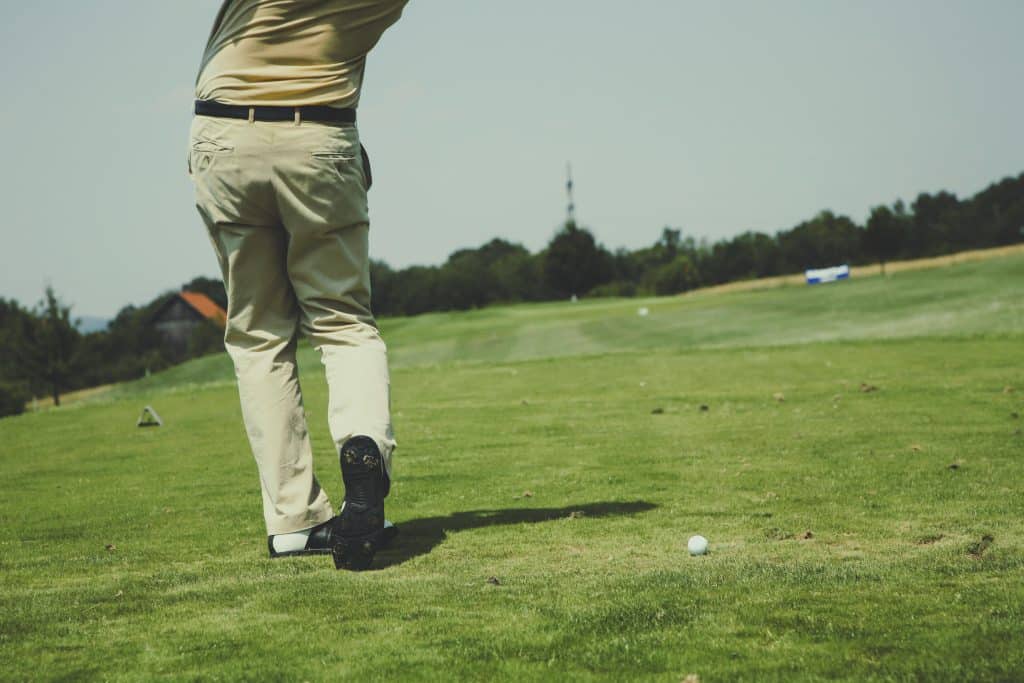I’ve played a lot of sports over the years — football, tennis, running, even a bit of cycling — but golf has always stood out for me. Not just because I enjoy it, but because of how it makes my body feel. Golf challenges you physically, mentally, and emotionally, but in a way that builds strength, balance, and control without the constant wear and tear that comes from higher-impact sports.
For me, golf isn’t just a hobby — it’s one of the best things I do for my overall health.
Golf Keeps You Moving Without Breaking You Down
Many people underestimate how much movement is involved in a full round of golf. A typical 18 holes can take you through several miles of walking, uphill and downhill terrain, all while carrying or pulling your clubs. That kind of low-impact endurance is excellent for joint health and cardiovascular fitness.
Compared to running or football, golf is far kinder to the knees, hips, and back. You’re still building stamina, but without the repetitive pounding that can aggravate old injuries or cause new ones. The slower pace gives your body time to adapt, breathe, and move naturally — which is something I appreciate more with every passing year.
A Game That Builds Balance and Coordination
As a physiotherapist, I’m constantly reminding people how crucial balance and coordination are for longevity. Golf demands both. Every swing is a perfect test of stability — it challenges your core, your posture, and your ability to generate power from the ground up.
That kind of controlled rotation and balance work is something I’d recommend in almost any fitness program. Unlike many sports that rely on bursts of speed or sudden changes in direction, golf rewards precision and awareness. You learn to connect your body and mind with each motion — and that’s a big reason it’s such an effective way to stay physically sharp.
A Mental Workout as Much as a Physical One
When I’m out on the course, I notice something that doesn’t happen in the gym or on a football pitch: my mind quiets down. Golf requires focus and patience. You can’t rush through a swing — or a round — if you expect to play well. That slower rhythm encourages mindfulness, presence, and calm under pressure.
It’s one of the few sports that lets you enjoy movement while also decompressing mentally. You’re outdoors, often surrounded by beautiful scenery, and you have time to think, reflect, or simply breathe between shots.
From a health standpoint, that mental decompression is just as valuable as the physical benefits. Reducing stress, improving concentration, and spending time in nature all contribute to better overall wellbeing.
Golf Strengthens the Muscles That Matter
A lot of people are surprised to learn that golf is a full-body workout — if you’re doing it right. A proper swing uses your glutes, core, shoulders, back, and even your forearms. Each shot engages the muscles that help with posture, stability, and movement efficiency.
And because golf encourages smooth, controlled motion, it’s a great way to strengthen the body without putting it through extreme loads. The rotational power developed through golf can actually enhance mobility and flexibility — two areas many people lose as they get older.
In contrast, higher-impact sports can sometimes create imbalances or tightness, especially when the same motion is repeated too often. Golf helps build symmetrical strength and smoother movement patterns.
Injury Prevention and Longevity
One of the reasons I’ve grown to love golf more as a clinician is that it fits perfectly into a long-term view of health. You can play it well into your 60s, 70s, and beyond. Unlike high-impact or contact sports, golf allows you to stay competitive and active without taking unnecessary risks.
From a physiotherapy standpoint, golf offers an ideal mix of movement and moderation. It challenges the body enough to maintain muscle tone, joint health, and coordination — but not so much that it causes the chronic overuse injuries we see in more intense sports.
And if you do experience any strain or tightness, it’s usually manageable through mobility work, stretching, or targeted treatment. In fact, many of my patients have discovered that improving their flexibility and core stability through physiotherapy not only helps them avoid injury — it actually improves their golf game.
Why Golf Wins for Me
There’s something special about golf that goes beyond the technical side of the sport. It’s social, it’s outdoors, and it encourages movement in a way that feels enjoyable rather than forced. I’ve seen people use golf as their way back into regular activity after years of feeling restricted or sedentary — and that’s what makes it so powerful.
It’s not just exercise; it’s connection. With nature, with friends, and with yourself.
If you’re looking for a sport that keeps your body healthy, your joints happy, and your mind clear, I can’t recommend golf enough. It’s the perfect blend of movement, mindfulness, and challenge — and for me, that’s a combination that’s hard to beat.
Feeling inspired to improve your swing and your body?
At Paul Hendricks Physiotherapy, we help golfers move better, play longer, and stay pain-free — so every round feels as good as your first.
👉 Book your session today and see how your body can perform at its best.


